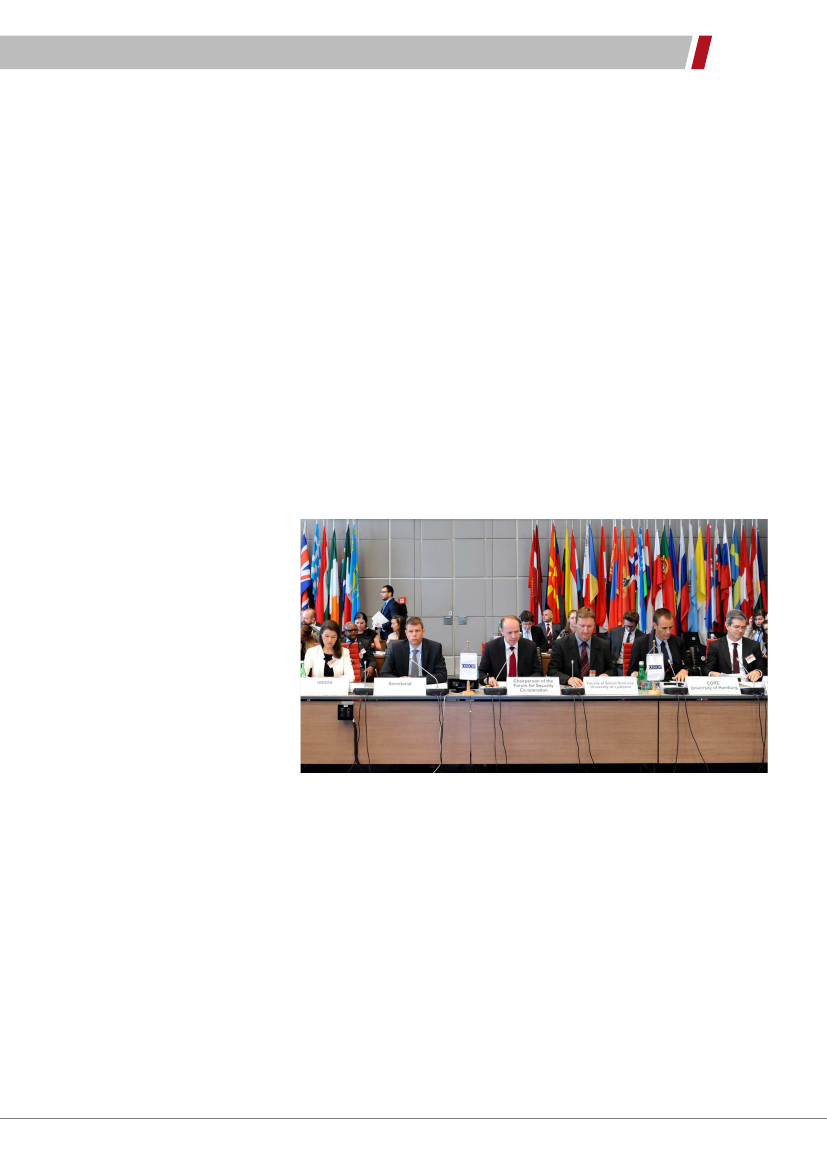
CSS Analyses
in Security Policy
No. 237, December 2018, Editor: Fabien Merz
CSS
ETH Zurich
The OSCE’s Military Pillar:
The Swiss FSC Chairmanship
In January 2019, Switzerland will take over the rotating chairmanship
of the Forum for Security Co-operation (FSC). The FSC is a little-known,
integral decision-making body of the Organization for Security and
Cooperation in Europe (OSCE). Every week in Vienna, the FSC discusses
and negotiates measures to strengthen security in Europe.
By Christian Nünlist
In January 2019, Switzerland will assume
the chairmanship of the OSCE Forum for
Security Co-operation (FSC) in Vienna
for four months. Following the Swiss
Chairmanship of the OSCE in 2014,
which was praised at home and abroad and
was dominated by the management of the
Ukraine Crisis, Switzerland will once again
assume a visible role in the OSCE to pro-
mote peace and security in Europe.
In principle, the task is a routine matter, but
since the outbreak of the Ukraine Crisis,
nothing in the OSCE has been routine. The
FSC has also suffered from the harsher po-
litical climate between Russia and the West.
Nevertheless, especially in times of crisis,
the FSC offers the opportunity for contacts
between Russia and the West, especially
military-to-military contacts. The FSC
deals with politico-military issues. Among
its most important tasks are the negotiation
and adoption of politically binding deci-
sions in the area of arms control and confi-
dence- and security-building measures
(CSBMs), as well as ensuring compliance
with the commitments entered into in this
area by the OSCE participating States.
Promoting the effectiveness of the OSCE
has traditionally been one of the priorities
of Swiss foreign policy. With its approach
of co-operative and comprehensive security
and its commitment to inclusive dialogue,
At the 881st meeting of the OSCE Forum for Security-Cooperation, CSS Senior Researcher Christian
Nünlist (r.) presents new ideas for arms control (25 April 2018).
Micky Kroell / OSCE
the OSCE reflects essential elements of
Switzerland’s foreign policy strategy. Since
July 2017, Swiss Ambassador Thomas Gr-
eminger has headed the organization as
OSCE Secretary General. His election can
be seen as a sign of appreciation within the
OSCE for Switzerland’s constructive role
in the world’s largest regional security or-
ganization and its 57 participating States,
including the US and Russia.
Switzerland sees itself as a bridge-builder
in the struggle between Russia and the
West over the future European order. Swit-
zerland supports both the OSCE’s crisis
management in the Ukraine Crisis and a
dialogue on core issues of European secu-
rity, including an eventual re-launch of
conventional arms control in Europe. Swit-
zerland is also committed to better imple-
mentation of the OSCE’s existing arms
control acquis and a modernization of CS-
BMs. These were agreed in the Vienna
Document and include the exchange of in-
formation on armed forces, defense plan-
ning and expenditure, prior notification
about major military exercises, and onsite
verification.
© 2018 Center for Security Studies (CSS), ETH Zurich
1